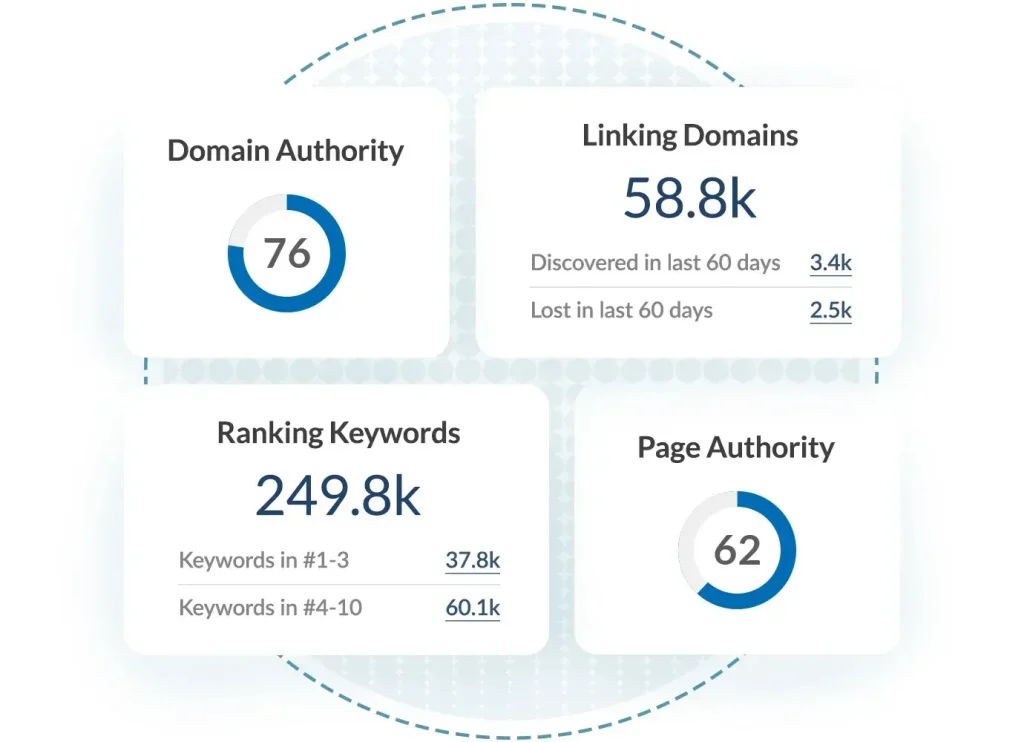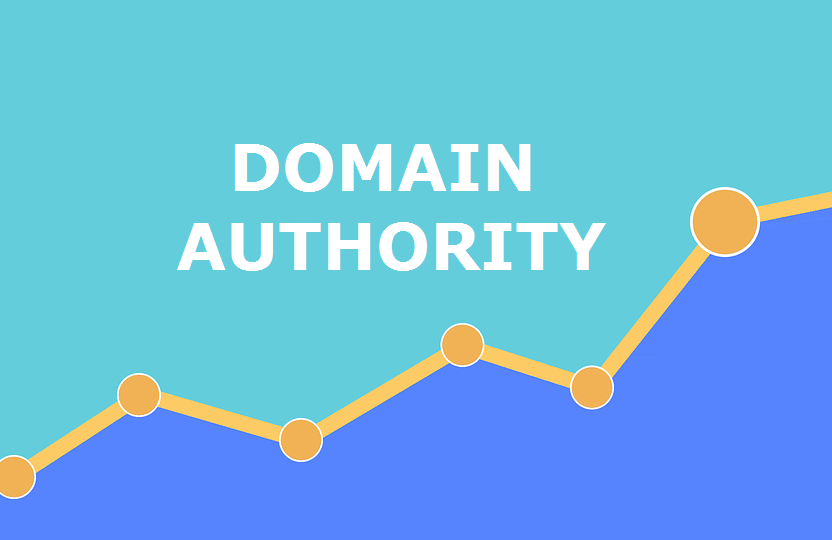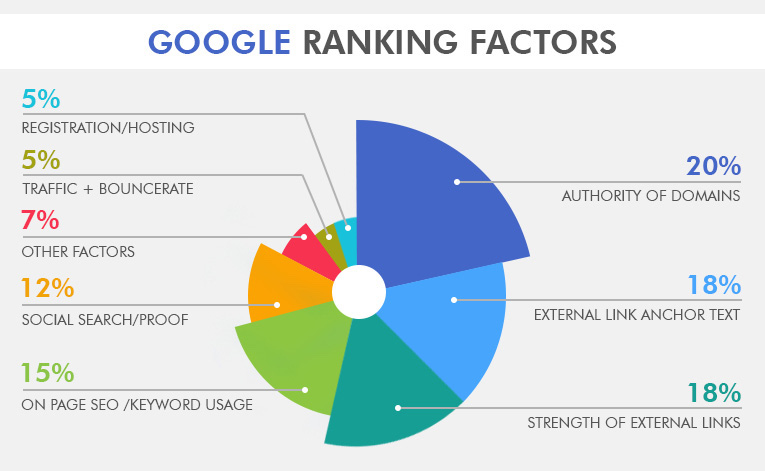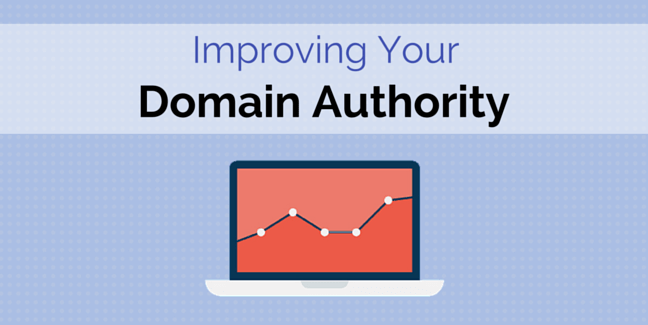Hi, Dave Fox here from Starscape SEO. In the world of search engine optimization (SEO), one of the most frequently discussed metrics is Domain Authority (DA).
Whether you’re a small business owner, a digital marketer, or an SEO specialist, you’ve likely come across discussions on how DA impacts your website’s rankings.
Domain Authority is a metric used by Moz and other SEO apps that aims to predict how well a website will rank on search engine result pages (SERPs).

Indeed, controversy even swirled for years around Moz founder Rand Fishkin, who has long suggested that Google used a metric akin to Domain Authority to rank websites, which Google denied, until their recent algorithm leak over on Github exposed it.

Even without knowing about the Moz brouhaha with Google, Domain Authority has been discussed.
Across the country, online businesses are asking questions like “What is domain authority?” and “How can I improve my site’s domain authority?” in hopes of better understanding how to boost their website’s search rankings and visibility.
But is Domain Authority really that important for SEO, and is it really something that Google takes into account?
And more importantly, how can you improve your site’s DA?
In this article, we’ll break down what Domain Authority is, whether it’s a real factor in SEO, and what steps you can take to increase it and potentially improve your website’s rankings in search engines.
What is Domain Authority & Is It Real?
Domain Authority (DA) is a search engine ranking score popularized by Moz.
It ranges from 1 to 100 and is used to predict how well a website will rank on search engine results pages.
A higher DA score generally means a greater likelihood of ranking higher in search results.
However, it’s essential to note that Domain Authority is not a direct ranking factor used by Google. Or at least that’s they’ve claimed up until now.
According to Google, it’s simply a third-party metric, one of many that SEO professionals use to gauge the strength of a website’s backlink profile and its potential to perform well in search engines.
Regardless of Google admitting that they use it officially (which many SEO experts would suggest that they absolutely do, but Google has not officially confirmed it – except for the contents of the algo leak), the concept of DA that Moz uses and others use, is based on Google’s behaviour, and therefore is deduced by inference from the outset.
In other words no one is going to give you a piece of paper confirming that gravity exists, but you know it exists because the concept proves itself continuously, so the paperwork from God is not necessary to abide by it. Deny gravity? Jump off a cliff, sans wingsuit, and send us the video to prove it’s non-existence!
DA is calculated based on various factors, including the number and quality of backlinks pointing to your site, the overall strength of your site’s link profile, and other off-page SEO signals.
The higher the quality of these links and the more relevant they are to your niche, the higher your DA score will likely be.
How is Domain Authority Calculated?
Moz uses a proprietary algorithm to calculate Domain Authority. Some key factors include:
Link Profile
The quantity and quality of backlinks pointing to your website are crucial.
High-quality links from authoritative, relevant sites can boost your DA score, while low-quality or spammy links can hurt it.
Root Domains
The number of unique root domains linking to your site is another significant factor.
A larger number of high-quality domains linking to your site will improve your DA.
Moz’s Ranking Algorithm
Domain Authority attempts to simulate Google’s ranking algorithm, taking into account multiple factors beyond just links.
However, since Moz’s algorithm is not the same as Google’s, it should be used as a relative metric, not an absolute one.
How to Improve Your Domain Authority
Improving your Domain Authority requires a holistic SEO strategy focused on acquiring high-quality backlinks, building a strong content base, and maintaining a technically sound website. Here’s how you can start:
Build High-Quality Backlinks
Backlinks are the backbone of Domain Authority.
However, not all links are created equal. Aim to earn links from authoritative, relevant sites within your industry.
Some methods to build high-quality backlinks include:
Guest Posting
Write high-quality guest posts for reputable sites in your niche.
In exchange, you’ll usually be allowed to include a link back to your own website.
Content Marketing
Create valuable, shareable content such as blog posts, infographics, or whitepapers that naturally attract links from other websites.
Broken Link Building
Find broken links on relevant websites and offer your own content as a replacement. This provides value to site owners while earning you a quality backlink.
Create High-Quality Content
Content is still king in SEO. To attract valuable backlinks, you need to create content that is engaging, informative, and authoritative.
High-quality content naturally attracts links and social shares, which can boost your DA.
Focus on evergreen content that remains relevant over time.
Create in-depth guides or original research that others in your industry will want to link to.
Internal Linking
While backlinks from external sites are important, don’t overlook the power of internal linking.
Properly linking your internal pages helps search engines understand the structure of your site and distributes “link juice” (the SEO value passed from one page to another through hyperlinks) across your web pages.
Use descriptive anchor text for internal links to help both users and search engines understand the content of the linked page.
Ensure you have a clear site structure and a logical hierarchy of pages.
Improve Technical SEO

A technically sound website can indirectly boost your Domain Authority by improving overall site performance and user experience.
Some important technical aspects to focus on include:
Site speed
Ensure that your website loads quickly.
Google considers site speed a ranking factor, and slow sites can hurt your SEO.
Mobile-friendliness
With mobile-first indexing, having a mobile-friendly site is critical.
Ensure your site works well on all devices.
Security (HTTPS)
Google prefers secure sites.
Make sure your site uses HTTPS instead of HTTP, which not only boosts SEO but also builds trust with your audience.
Remove Toxic Backlinks
While earning backlinks is essential, toxic or spammy backlinks can actually hurt your Domain Authority.
Regularly audit your site’s backlink profile to identify and disavow harmful links using Google’s Disavow Tool.
What Comes After Domain Authority?
After improving your Domain Authority, it’s important to remember that DA is not the end goal.
Focus on improving your overall SEO strategy, increasing organic traffic, and providing value to your audience.
High Domain Authority is a good sign, but the primary goal is still to rank higher in search engines, provide a great user experience, and grow your business.
Final Thoughts
While Domain Authority isn’t an official ranking factor in Google’s algorithm (although the leak contradicts this), it serves as a valuable metric for assessing the strength of your website’s backlink profile.
By focusing on high-quality content, earning authoritative backlinks, and maintaining a technically sound site, you can improve your DA and, in turn, boost your search engine rankings.
At the end of the day, Domain Authority may not be a “real” metric in Google’s eyes, but it remains an essential tool for SEO professionals to gauge and improve a site’s performance in search results.




